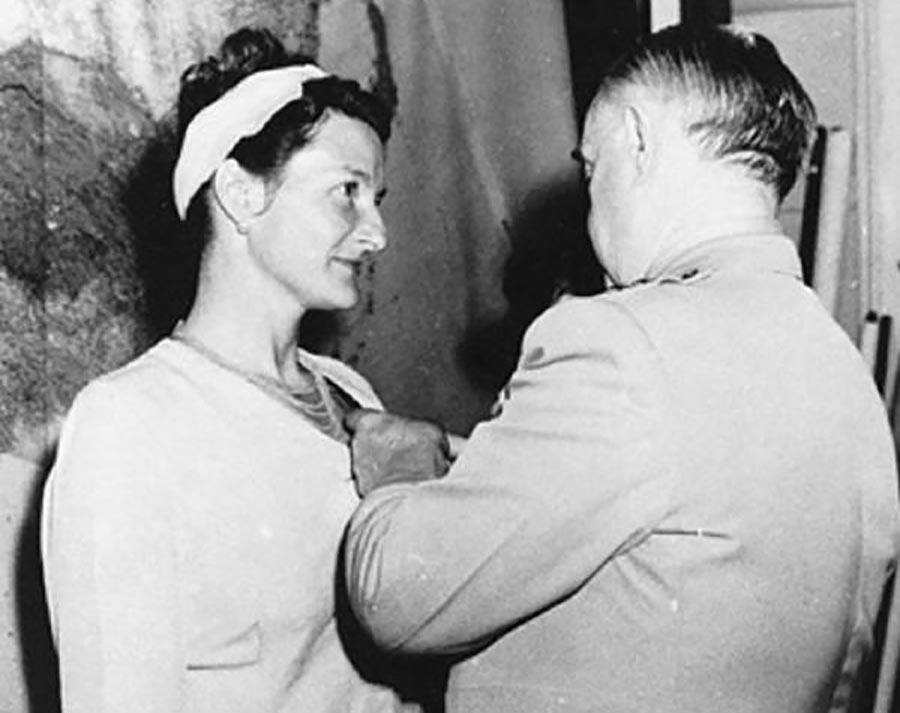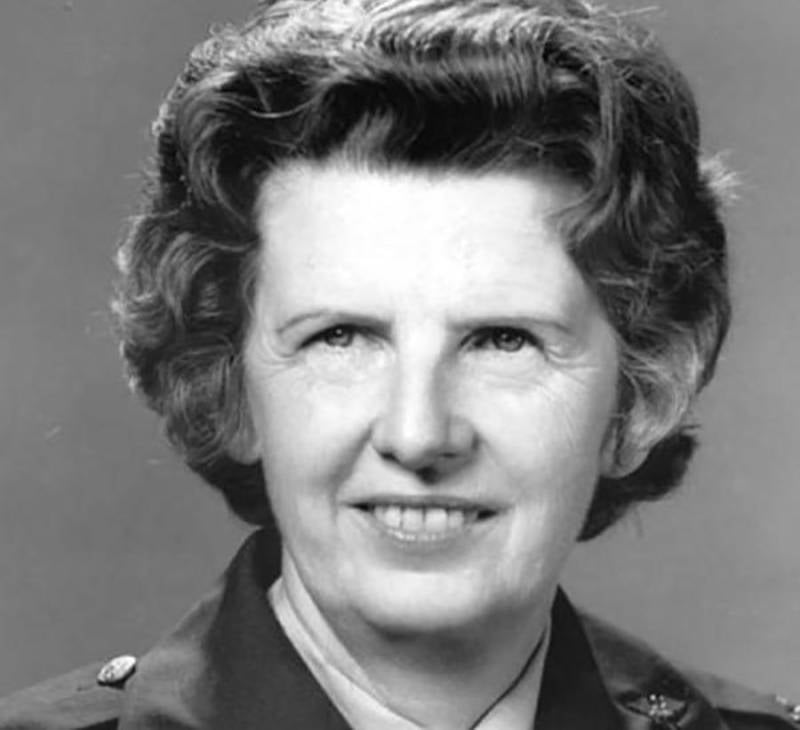Virginia Hall

Wikimedia Commons
It was once a Nazi imperative to find the unknown “woman with a limp.” In the words of the Gestapo, this woman was “the most dangerous of all Allied spies. We must find and destroy her.”
The Gestapo spoke of Virginia Hall. Baltimore-born Hall became the first female operative of Britain’s Special Operations Executive to be sent into France, where she worked in the country as a spy for three years.
When the Nazis flooded the country, Hall was forced to escape on foot through the Pyrenees Mountains into Spain, a monumental task for anyone – but even more amazing for a woman who had lost a leg years before in a hunting accident.
Hall, using a prosthetic leg which she had nicknamed “Cuthbert,” trekked through the frozen landscape and sent a message to SOE headquarters explaining that she was having difficulty with her artificial limb. The reply: “If Cuthbert is giving you difficulty, have him eliminated.”
When she arrived in Spain, Hall was initially imprisoned for not having valid entry papers. Upon her release six weeks later, Hall worked as an undercover correspondent in Madrid for the Chicago Times, before eventually joining the Office of Strategic Services.
At her request, Hall was sent back into occupied France where she worked as a wireless radio operator, reporting the movements of German troops and organizing supply and arms drops. To avoid detection, she remained on the move – staying in attics or barns. Hall disguised herself as an elderly milkmaid in order to make her way through the French streets, shuffling her feet to disguise the limp that all SS soldiers were on the lookout for.
In recognition of her courage, Hall was awarded the Army’s Distinguished Service Cross — the only civilian woman to have earned one. She joined the CIA in 1951, working as an intelligence analyst. Hall retired in 1966.
Ruby Bradley

Wikimedia Commons
While she only “[wanted] to be remembered as just an Army nurse,” Ruby Bradley was so much more than that. Bradley, a surgical nurse who served at Camp John Hay, was captured three weeks after the attack on Pearl Harbor and became a prisoner of war at the Santo Tomas Internment Camp in Manila.
At the POW camp, Bradley was regarded as an “angel in fatigues,” giving medical care to her fellow captives and saving some of her food for others struggling. “I’d save part of my food for the children later in the day, when they started crying and being hungry,” she said.
Bradley was held for 37 months, all the while performing over 230 surgeries and assisting in childbirths under the camp’s inadequate conditions – and smuggling in food and medical supplies. Bradley weighed only 80 lbs. when she was finally liberated from the camp in 1945.
Her experience at the camp did not deter her from future service: Just five years later, Bradley stood at the front lines in the Korean War, working as chief nurse at an evacuation hospital.
Even when surrounded by 100,000 Chinese soldiers, Bradley refused to abandon the facility until all injured persons were loaded onto a plane. “You got to get out in a hurry when you have somebody behind you with a gun,” Bradley said. She was the last one on the plane – right before her ambulance exploded from the hit of an enemy shell.
Leaving Korea in 1953, Bradley received a full-dress honor guard ceremony – the first woman ever to be bestowed this honor, nationally or internationally. After three decades of service, dozens of medals, and being only the third woman to achieve the rank of colonel, Ruby Bradley retired from the military in 1963. Even after her retirement, she worked as a supervisor in a private duty nursing service.





